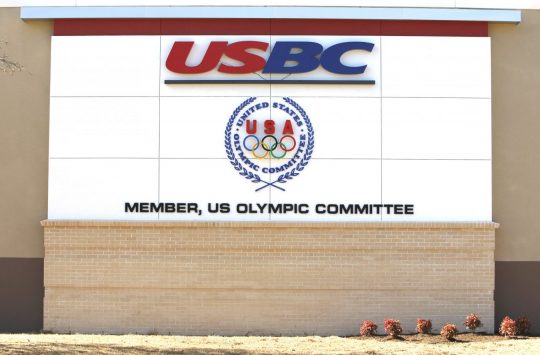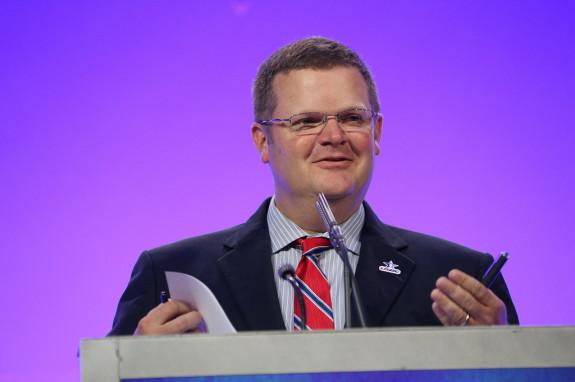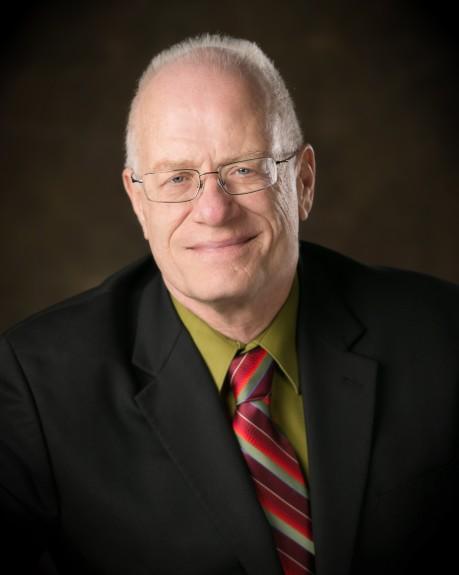Confusion as to Why USOC Put USBC on Probation

USBC seeks mutually agreeable path forward with USOC
The United States Bowling Congress must revise and clarify its process for handling grievances members file against the organization after the United States Olympic Committee placed them on probation in June due to concerns about whether their members receive federally mandated due process protections. USBC now must work with USOC over a six-month period to better understand and implement USOC’s expectations for compliance with their due process guidelines, and potentially could get an extension should USBC’s progress be deemed substantial enough to warrant more time.
The decision came at the recommendation of a USOC Hearing Panel before which Ed Williams, a former Assistant United States Attorney for the Southern District of New York who specializes in matters of sports law pertaining to the Ted Stevens Olympic and Amateur Sports Act, argued that USBC’s due process procedures for USBC members with grievances against the organization fall short of obligations established by that federal law. The USOC panel heard the case on February 23 and 24, then rendered a decision on June 8 in which they sided with Williams on three of his four claims against USBC. Prior to the hearing, the USOC panel dismissed 17 additional claims Williams had filed against USBC.
The Ted Stevens Act requires that amateur athletes who have a grievance against their sport’s national governing body be given the right to an in-person hearing during which they can present evidence, call witnesses and cross-examine witnesses before the NGB takes any action on the matter such as revoking the athlete’s eligibility to compete. The Act further requires that the NGB panel hearing the case comprise 20 percent athlete representation. In bowling, that would mean the likes of, for example, Kelly Kulick, Chris Barnes and other top-flight bowlers would need to sit on the panel and participate in the hearing and subsequent decision.
Williams’s litigation has its roots in a Dec. 31, 2013 decision by Judge Frederick S. Kessler of the Superior Court of New Jersey in a case in which USBC prevailed over plaintiffs Strike Merchants Bowling Club Foundation, Inc., and Minnie Banks-Belton, who had served as that organization’s Tournament Administrator as well as Chairperson of its Board of Directors. Strike Merchants sued USBC after USBC suspended Banks-Belton for her organization’s refusal to pay $4,500 in prize money to a competitor because they found that, in the words of the New Jersey Superior Court Appellate Division’s March 3, 2015 decision denying Strike Merchants’ appeal, the bowler had “misstated his rated bowling average by one point.”
 USBC Executive Director Chad Murphy seeks an "appropriate path forward that makes sense for both" USBC and USOC.
USBC Executive Director Chad Murphy seeks an "appropriate path forward that makes sense for both" USBC and USOC.
USBC initially sided with Strike Merchants but later ordered them to pay the bowler, Eric Elliott, after he informed USBC that he never received Strike Merchants' letter informing him of their refusal to pay him the prize money and the reasons why. Such notification is a requirement under USBC rules. Elliott contended that the letter had been sent to an old address and therefore never reached him. Banks-Belton, speaking with BJI through Williams, contended that, “Eric Elliott was given the proper notice regarding his re-rated bowling average at the correct address.” To date, Elliott still has not received the $4,500.
That case inspired a separate grievance filed against USBC by three new “complainants,” as they were referred to in the USOC Hearing Panel’s decision, alleging that USBC fails to provide all its members with due process protections called for by the Ted Stevens Act such as an in-person hearing before a panel comprising 20 percent athlete representation. Those complainants — Wayne Hightower, Donna Hall and Lawrence Digsby — are represented by Williams and filed their complaint with USOC on Oct. 29, 2015 after “first exhausting remedies available to them by the NGB,” in the words of Williams’s pre-hearing memo.
USOC CEO Scott Blackmun then appointed a hearing panel chaired by USOC Board Member Bill Marolt and including also Orienteering USA Executive Director Glen Shorr and table tennis athlete Han Xiao, who also serves on the USOC Athletes’ Advisory Council. The February hearing before the panel was made necessary when mediation failed to yield a resolution by October 2016.
The four claims against USBC that were considered by the USOC Hearing Panel included the following:
- That USBC “does not provide for the prompt and equitable resolution of grievances of its members as it does not have a procedure for administering and hearing member complaints alleging that USBC is not fulfilling its NGB responsibilities as required by the Act and USOC Bylaws.”
- That USBC “does not provide ‘fair notice and opportunity for a hearing to an amateur athlete, coach, trainer, manager, administrator or official as it does not provide for an in-person hearing before declaring the individual ineligible to participate or suspending the individual’s membership.’”
- That USBC “fails to post its Board minutes on its website or otherwise make minutes of its board meetings available to its members.”
- That the above claims suggest that USBC “fails to fulfill its responsibilities as an NGB.”
Claim 2 comprised the lion’s share of the USOC panel’s 52-page decision. At the heart of the matter is disagreement between Williams and USBC as to the definition of “amateur athlete” for the purpose of determining the extent of a USBC member’s access to Ted Stevens Act protections. USBC argues that only “elite athletes” are entitled to those protections, and defines such athletes in its own bylaws as those who meet the criteria required to become an athlete representative on the USBC Board of Directors.
Those criteria include being a Team USA member within the past 10 years who “has represented the United States in the Olympic or Pan American Games, or an Operation Gold event, or a World Championship recognized by ,” in which case USBC defines the athlete as a “Team USA Athlete.”
The other class of “elite athlete” USBC recognizes as entitled to Ted Stevens Act due process in the event of a grievance is the “Actively Engaged Athlete,” which USBC defines in its bylaws as “individuals who have demonstrated active engagement in amateur bowling competition by finishing” either in “the top five percent of all amateur finishers based upon the combined list of participants in the All Events event from each of the divisions” or in “the top 50 percent of all amateur male and of all amateur female finishers” in the Team USA Trials or the Junior Gold Championships.
Any other USBC member whose competitive accomplishments do not arise to those standards are, in USBC’s perspective, not entitled to Ted Stevens Act due process in the event of a grievance against the organization. This includes, for example, a USBC member such as Minnie Banks-Belton, an administrator in her late 80s who is neither a past or present Team USA member with international competition on her resume nor a standout performer in the USBC Women’s Championships.
However, the USOC hearing Panel decided that if the framers of the Ted Stevens Act intended “to limit the definition of amateur athlete or of coaches, trainers, managers, administrators and officials to a specific subset of individuals,” the language of the Act “would have made that evident and clear.” Instead, the USOC Hearing Panel’s decision averred, “the plain language” of the Act includes “a deliberate inclusion of the word ‘any’ prior to the list of amateur athletes, coaches, trainers, managers, administrators and officials… ‘Any’ athlete does not mean some athletes.”
The panel therefore concluded that USBC is not compliant with the Ted Stevens Act “by not providing an opportunity for an in-person hearing for its members when suspending membership or barring an individual from competing.” The panel members made explicitly clear in their decision how broadly the Ted Stevens Act applies in their view, writing that, “all athletes and all coaches, trainers, managers, administrators and officials must be treated equally and afforded with the same type of due process protections when membership and participation in competition are in question.”
Their decision on that matter came in spite of a multitude of concerns expressed by USBC’s Milwaukee, Wis.-based attorney, Ted Wisnefski of Michael Best & Friedrich LLP, regarding the potential financial and administrative burdens imposed on USBC by such a broad application of the Ted Stevens Act. Wisnefski argued that making a Ted Stevens Act type of due process available to 1.5 million USBC members may present a staggering challenge given the 20,000 phone calls per year that come into the USBC Rules department regarding disputes between USBC members, any of which may involve a dispute that could prompt a suspension.
While the USOC panel concluded that only cases in which members have been threatened with suspension or actually suspended would warrant a Ted Stevens-level due process procedure, testimony given during the hearing established that USBC handles 60 to 70 suspension cases per year. Testimony also established that none of those cases ever have involved elite athletes and therefore have not required in-person hearings and panels with athlete representation. Wisnefski argued that applying such a level of due process for up to 70 suspension cases a year would, among other burdens, tie up elite athletes such as Team USA members in one suspension hearing after another.
 World Bowling CEO Kevin Dornberger said “Nothing that was brought to my attention led me to believe that there was any problem" with USOC during his tenure as USBC Executive Director.
World Bowling CEO Kevin Dornberger said “Nothing that was brought to my attention led me to believe that there was any problem" with USOC during his tenure as USBC Executive Director.
The USOC panel claimed in its decision that such arguments were “exaggerated,” saying that, “Just because an individual has an opportunity to request an in-person hearing does not mean that in all instances every individual will do so.” The panel also concluded that “in-person” does not have to mean that all parties convene in the same physical location, because “modern technology allows for these matters to be conducted via telephone or video conferencing.”
The panel also upheld Claim 1, requesting that USBC do more to spell out due process procedures which, in the panel’s view, official documents such as the USBC Bylaws, National Policy Manual and Legal and Legislative Policy Manual presently only allude to. Claim 4 proved redundant, as the panel’s conclusions on Claims 1 and 2 suggested to them that USBC was not currently fulfilling its duties as an NGB. Claim 3, however, was dismissed on the grounds that nowhere in the Ted Stevens Act does it explicitly obligate NGBs to post Board meeting minutes online. The panel nonetheless recommended doing so as a matter of transparency.
The panel’s decision requires USBC to meet with them every 45 days to discuss USBC’s progress in rectifying the problems it identified with USBC’s compliance with USOC guidelines, and the first such meeting is scheduled for September 29. If at the end of the six-month probation period USBC is found to have made progress in complying with USOC guidelines and with the Ted Stevens Act, an extension could be granted to allow them to continue working on compliance until USOC is satisfied that its expectations have been met.
Former USBC Executive Director Kevin Dornberger, previously the President of World Bowling and now that organization’s CEO, said that if USBC ultimately is stripped of its NGB status, USOC potentially could step in as bowling’s NGB on an interim basis. BJI reached out to USOC three times asking for clarity on next steps should USBC be defrocked, but had not gotten a response as of this writing.
In a July 29 Facebook post made after Jerry Kessler posted the USOC panel’s decision in his “USBC Bowlers Discussion Forum” the prior day, igniting discussion about the issue on social networks, USBC Executive Director Chad Murphy wrote, “USBC disagrees with the USOC panel decision and its interpretation of the Sports Act in this case. We look forward to collaborating with USOC staff on an appropriate path forward that makes sense for both organizations.
“This ruling has no bearing on our Team USA program whatsoever,” he added. “These athletes have additional rights through the and USBC has been operating the Team USA program with USOC for years with no issues or concerns.”
Uniformly, every one of Murphy’s predecessors, including former USBC CEO Roger Dalkin and former USBC Executive Directors Kevin Dornberger and Stu Upson, agree with Murphy and expressed surprise and confusion over the USOC panel’s ruling in interviews with BJI.
Asked if he ever had gotten any indication from USOC that they were dissatisfied with the extent of USBC’s compliance with USOC guidelines or with the Ted Stevens Act during his tenure at USBC, Upson told BJI that USOC had never expressed anything to that effect in any communication or conversation with him or with any other USBC staffer that he was aware of. Upson also said he “had no reason not to believe” that USOC’s approval of USBC as a USOC member and as bowling’s national governing body in the U.S. did not also imply their approval of USBC’s Bylaws and due process procedures. Upson presided as USBC Executive Director from July 2009 to February 2014.
He further explained that had USOC ever made any such statement to Neil Stremmel, who was USBC’s Managing Director of the NGB until February of last year, Upson, who now works as Chief Operating Officer at the Tennis Hall of Fame, would have been the first person to whom Stremmel would have reported such communication.
Stremmel, who now works as Standards Manager at the Acoustical Society of America and attended many meetings with USOC officials at USOC headquarters in Colorado Springs, Colo., during his time with USBC, confirmed Upson’s statement with BJI and added that, “When the USOC approved us as NGB in 2005, they accepted our procedures and processes and now it seems that they have flipped on that.”
Stremmel emphasized that USOC’s decision to place USBC on probation is a serious matter, noting that, “The USOC is one of the biggest names in sports, not just in the U.S. but globally. They are the ones who gave USBC its NGB status, so to have them put USBC on probation is far from a non-issue.”
In the USOC Hearing Panel’s proceedings, Ed Williams disputed that USOC ever had approved of USBC “procedures and processes” or its Bylaws. He drew attention to a June 14, 2005 letter then-USOC CEO Jim Scherr sent to Dalkin and Michael Carroll, who respectively were USBC’s CEO and President at the time. While congratulating them on USOC’s acceptance of USBC as a USOC member and NGB, the letter also stated that “the USOC Board conditioned USBC’s acceptance … on USBC’s implementation of the USOC’s governance guidelines,” which explicitly included compliance with the Ted Stevens Act. “These guidelines must be implemented by USBC as soon as possible, but no later than December 31, 2007.”
However, that deadline came and went without Dalkin or Dornberger, his successor, getting any impression from USOC that USBC was failing to implement USOC guidelines. “By the time I left in August 2007, months before that deadline, I believed we had resolved this whole issue. Everything was going along, we had gone to the Pan Am Games in 2007, we had been handling thousands of cases with our members year in and year out with no problem. I don’t know, I am 10 years removed now, but it seems like something has changed in Colorado Springs, and I don’t know what it is.”
Dornberger, who then served as USBC Executive Director until Upson was hired in July 2009, said he, too, heard no complaint from USOC indicating they were concerned about USBC compliance with their guidelines. “Nothing that was brought to my attention led me to believe that there was any problem,” he said. “If USBC’s internal procedure is exactly the same now as it was in 2005, then something in Colorado Springs has changed.”
Murphy, too, wondered what might have changed between then and now.
“The USOC writes rules like we do, their rules in other NGBs changed but they didn’t apply to us. Possibly, now they do,” he wrote on Facebook.





